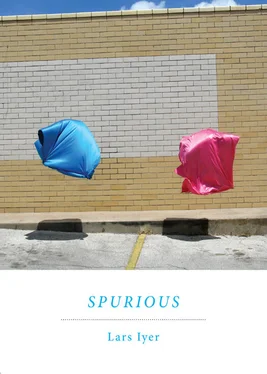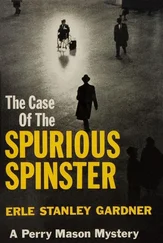It’s no wonder I don’t do any work, W. says. He couldn’t work if he lived like me. Out all the time, reading nothing and living in squalor. It really is disgusting, he says. And the damp! He’s never seen anything like it, W. says. It hits you as soon as you come in. No wonder I’m always ill.
‘What would Béla Tarr would think of your damp?’, W. says. ‘What would he make of it?’ W. has become obsessed with Béla Tarr. He’s a genius, says W. He says he only makes films about poor, ugly people. The ugly and poor are his people, that’s what he says, says W.
Béla Tarr was going to be a philosopher. But when he started making films … No abstraction for him, says W. He’s completely devoted to the concrete, says W. To what he sees in front of him. He’s not like us, W. says. He doesn’t float nebulously into the most general and most confused of ideas, into our clouds of unknowing .
‘Béla Tarr doesn’t believe in God’, says W. ‘He’s seen too much to believe in God’. A little later, ‘He takes years over each film’, says W. ‘Years! Every kind of obstacle is placed in his way. His producers die of despair. His cinematographers leave in disgust. He runs out of money’. And then, ‘His films are full of drunks. Full of drunk, aggressive people like you’, says W. ‘And mud. His films are full of mud. That’s where you belong’, says W., ‘in the mud’.
Béla Tarr made his first film when he was sixteen, W. says. Sixteen! Sixteen! That’s when he started, says W. — ‘When did you know’, says W., ‘when did you know you’d never amount to anything?’ When did I take refuge in vague and cloudy ideas that have nothing to do with the world?
There’s something absolute about my yard, W. says. You can’t get beyond it. Some great process has completed itself there. — ‘What did you do to those plants? Desecrate them?’ and then, ‘What’s hung over your washing line? What was it, before it started rotting?’, and then, ‘Were those once bin bags? My God, what have they become?’
Béla Tarr would discern what is absolute about my yard, W. says. He’d register its every detail in a twenty minute tracking shot. The sewage, the concrete, the bin bags and rotting plants … the yard would mean more to Béla Tarr than all our nonsense.
Béla Tarr said that the walls, the rain and the dogs in his films have their own stories, which are much more important than so-called human stories. He said that the scenery, the weather, the locations and time itself have their own faces . Their own faces! Yes, we’re agreed, the yard, the horror of the yard, is the only thing around here in which Béla Tarr would be interested.
W. sends me a quotation to mull over in my stupidity , he says.
Forms of behaviour such as opportunism and cynicism derive from this infinite process in which the world becomes no more than a supermarket of opportunities empty of all inherent value, yet marked by the fear that any false move may set in motion a vortex of impotence .
W. finds the phrase, vortex of impotence , particularly thought-provoking, he says. It describes my entire life: action and powerlessness, movement and paralysis; that strange combination of despair and frenzy.
I want to escape, that’s my primary impulse, W. observes. I know something’s wrong, fundamentally wrong, and I want to be elsewhere. Of course, he’s not like me, says W., the rat who leaves the sinking ship. But I’m not escaping, says W. I’m going to drown with everyone else, he’ll make sure of it. I’m going down , says W.
We’re at the Mill on the Exe, right on the river, the sun shining warmly on our faces.
The South West! W. exclaims. He feels fortunate to live here. The South West is the graveyard of ambition , a colleague warned him upon his arrival from the east, but W. is not ambitious.
He just wants a little time and space to work, to think. To try to think, W. says. He reads in his study for three hours a day, he says, and he’s content with that. And occasionally he writes a thought in his notebook, at the back, in red ink.
‘What about you?’, W. asks. ‘Where do you write your thoughts?’ I tell him I’m too troubled to think. W. says he’s troubled too, who isn’t? But neither of us really is troubled, W. says. He always thinks of us as joyful, he says.
Drunk in the sun, we offer encomiums to one another. I never make him feel anything other than joyful, says W. I tell him he is able to momentarily make me forget my troubles and that this is his great gift.
W. and I are celebrants of rivers, and always feel the need to hail them. — ‘The mighty Tyne!’, W. might say, and I might say, ‘the mighty Plym!’ The sight of a river is always an occasion. So, of course, is that of the sea. It’s the ozone, says W., it makes you feel alive.
It does, and in particular the view of the sheet of the sea, just past Exeter. The whole sheet of the sea, viewed from the train, neat Plymouth Gin and ice in our plastic cups. — ‘This is happiness’, says W. Of course, they’ll have to reroute the trains soon. They’re electrical and short circuit when the surf splashes over them. Sometimes they stop for hours, immobile on the track. — ‘It’s the new trains’, says W. ‘They’re shit’.
W.’s felt ill nearly all his adult life, he says. When was the last time he felt well? I ask him. He can’t remember. — ‘It’s been years’, he says suddenly. ‘Years!’ He used to go for great walks on the moors, he remembers. That’s when he last felt healthy: on his great weekend walks, when he would set off with his walking friend (whatever happened to him?) with no particular end in view. They’d just walk for miles across the moors.
There’s nothing better, he says, than to climb up to the moors, and see the blue strip of the sea in the distance. Are there really big cats up there, panthers and the like? He never saw any, he says. There might be. But his moor walks are long since over. He lacks something, W. says. There’s something missing in him. Why doesn’t he go on his great moor walks any more? he wonders, as we look out to sea.
It’s important to hail rivers, we both agree, but just as important to hail the sea, although we do not do so by name. We do not, for instance, hail the sea south of Edinburgh as the North Sea, or the sea south of Exeter as the Atlantic (is it the Atlantic? I ask W. It is, he says.). A simple, ‘The sea!’ is enough. Just as when we see the edge of the moor on our train journeys in Devon, we cry, ‘The moor!’
Ah, the moor! W. is feeling regretful again. How can he become a better person, a better friend? How might he become a better thinker? His life is full of regret, he says, and gets out his Cohen. He’s going to read now, he tells me, and I’ll have to entertain myself.
On the train, W. and I sip Plymouth Gin from plastic cups. — ‘How come you got more ice than me?’ He reaches over and grabs a handful of mine.
Meanwhile, his book lies unread on the table. — ‘Cohen’, sighs W., ‘that’s what I should be reading, instead of talking idiocies with you’.
Then he tells me about calculus and God. — ‘Calculus: that’s why Cohen thought God existed. It’s all about maths!’ W.’s dad tried to teach him calculus, but he didn’t understand a word. — ‘I wasn’t ready’. W.’s found an instructional website now. He does exercises.
A little later he says, ‘We’re not religious. We’ve got no interest in religion. We’re not capable of religious belief’.
We know what genius is, says W. aphoristically, but we know we’re not geniuses. It’s a gift, he says, but it’s also a curse. We can recognise genius in others, but we don’t have it ourselves.
Читать дальше












